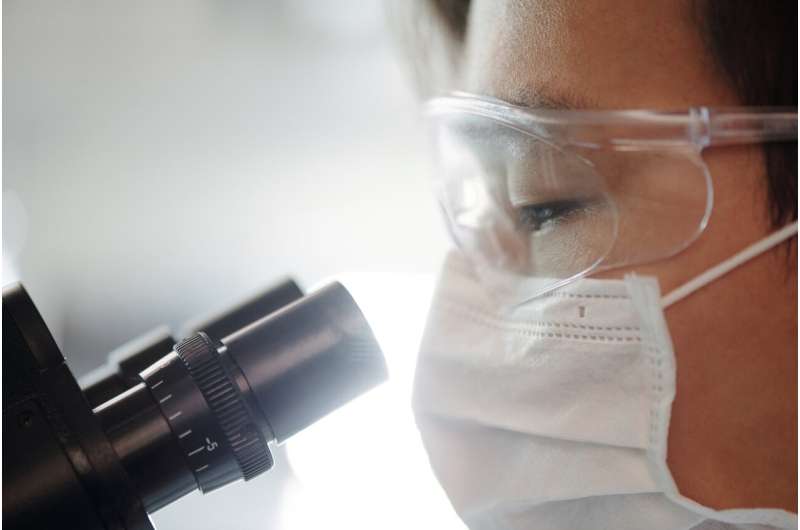Blood test predicts recovery after hip-replacement surgery

Clues from a blood sample can predict how quickly patients who have had hip-replacement surgery will make a full recovery, according to a new study led by Stanford Medicine researchers.
The hope is that the blood test will provide insights into things patients can do before and after surgery, such as adhering to a special diet or exercise routine, that may help them regain full mobility.
The findings may also help clinicians more accurately evaluate patient recovery after surgery. Currently, physicians gauge patients' recovery by asking them questions about pain and physical activity, among other things. But these surveys are subjective, said Nima Aghaeepour, Ph.D., an assistant professor of anesthesiology, perioperative and pain medicine, and it requires a lot of guesswork to interpret the responses.
"We needed to find a more reliable, data-driven method to anticipate the precise needs of patients as they get back on their feet after surgery," Aghaeepour said.
The paper was published Oct. 14 in Annals of Surgery.
Immune cell crystal ball
In their search for a molecular harbinger of surgical recovery, the team enrolled 49 hip-replacement patients, ages 57–68, and asked each to don an activity-tracking smartwatch before and after their procedures. Before the surgery, each patient also underwent a blood draw, which the researchers analyzed using techniques that parsed cell subtypes, as well as the cells' activity.
The idea was to compare blood-test analyses, which capture information about protein levels and immune function, with how long it took for patients to fully recover after their procedure. (The researchers measured full recovery by recording activity patterns, such as sleep data, step count and other movements, before surgery, then tracking how long it took for patients to return to those levels post-surgery.)
Using the smartwatch data and information from the pre-surgery blood draw, the team devised an algorithm that could accurately predict how swiftly patients would get back on their feet. Overall, those whose blood tests showed the strongest immune function prior to surgery recovered 34% faster than those with weaker immune function.
The algorithm's predictive power relied largely on the activity of myeloid-derived suppressor cells, a type of immune cell. But the researchers weren't simply looking for this cell's presence; they also were measuring its activity when exposed to a molecule that mimics an infection. Higher activity levels correlated closely with quicker recovery times.
Refining predictions
While the study's data is preliminary and applies only to hip surgeries in people around age 60, the researchers suspect that the findings will generally apply to patients of various ages undergoing different procedures. "My expectation is that there will still be a strong connection between the immune system and recovery, but exactly what that connection will be is still to be determined," Aghaeepour said. The researchers plan to investigate other patient populations with the same blood test and smartwatch approach.
They are not yet using the predictive data to inform patient care, but the ultimate hope is that anyone awaiting a surgical procedure will receive the blood test to guide the smoothest, fastest recovery.
More information: Ramin Fallahzadeh et al, Objective Activity Parameters Track Patient-Specific Physical Recovery Trajectories After Surgery and Link With Individual Preoperative Immune States, Annals of Surgery (2021). DOI: 10.1097/SLA.0000000000005250


















